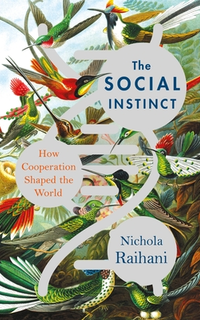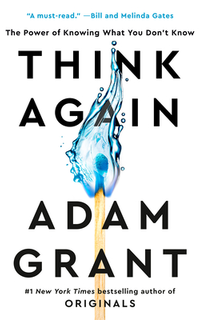Collection
13 Books to Read for a Happier, More Productive, and Less Stressed 2022
As 2021 comes to a close, I am willing to bet a lot of you out there aren't too sad to see it go. Covid, politics, crazy weather, and an incredibly unpredictable business environment made it an incredibly challenging year for entrepreneurs (and nearly everyone else, too). What can you do to make 2022 less stressful and more serene?
There's not too much you can personally do about inflation or Omicron, but you can fortify your optimism with the latest insights from the field of positive psychology. This branch of psychology looks at ways to bring out the best in human beings, helping us connect, achieve, and generally flourish in our lives.
UC Berkeley's Greater Good Science Center is one of the leading research centers in the space, and each year it rounds up the best positive psychology books of the past 12 months. Its latest list is just out, and it's full of great reads filled with useful tools and insights to help you meet the challenges of 2022 with greater equanimity and wisdom. Check them out below.
"Why do people listen to sad songs, eat incredibly spicy food, skydive, run marathons, watch horror movies, engage in sexual practices that involve pain, or seek out physical violence?" asks psychologist Paul Bloom in this book exploring how suffering can make life more meaningful. "It will help you understand a great deal of otherwise puzzling human behavior, perhaps even your own," promises Greater Good.
I am a bit of an Oliver Burkeman fan girl, so I was thrilled to see his latest book on Greater Good's list. One essential question is at its heart: "What if we paid more attention to the limited time we have on the planet and lived our lives accordingly?" Burkeman doesn't offer just the usual time management advice, but wrestles directly with mortality and our need to maximize the joy and satisfaction we get from our limited time here on earth.
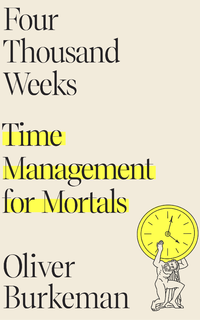
As 2021 was an anxious year, many of us are desperate for a more serene 2022. This book can help. "There are a million and one tips out there about what to do when you feel anxious," Greater Good says, but Brewer's book "shows how anxiety exists inside the habits that make up our everyday lives. ... Before we cultivate new, calmer habits, we have to examine the old ones, observe how they're hurting us, but also understand what we're getting out of them that makes our brains cling to them." You can read a quick preview of Brewer's thinking here.
You could be forgiven for thinking that a book on trauma sounds like a heavy (if sadly topical) read, but Greater Good insists this book "provides a confident, accessible overview of the research into the causes and treatment of trauma, brought to life by stories of its author, psychiatrist Paul Conti, and his patients.
It's hard to have a good year if you feel like your brain is giving out on you, which is why this book on fighting cognitive decline as you age by CNN medical correspondent Sanjay Gupta makes Greater Good's list. "In his book, Gupta gives us five main take-home messages culled from neuroscience research: We need to move our bodies regularly (even mild exercise helps), get solid sleep, eat well, connect with others, and find meaning in life," reports the site. Check out the book for a lot more detail.
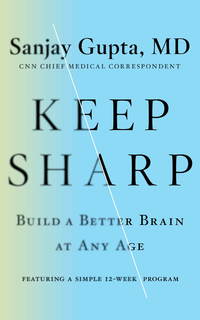
There are plenty of reasons to be anxious going into 2022, but the climate crisis definitely ranks toward the top of my--and many other people's--list. In this book, climate scientist Katharine Hayhoe argues we shouldn't be paralyzed by fear in the face of dire climate news. "By focusing on how we can successfully encourage everyone to take climate change seriously and do their part, she offers hope for avoiding disaster through collective action," notes Greater Good. Give me a dose of that, please.
External issues like climate change and aging can certainly be a drag on our happiness, but so can internal processes and habits. It's this inner game that psychologist Ethan Kross tackles in his book. Kross offers advice on how to calm the negative or bullying voices in your head and "cultivate a calmer, kinder, and more helpful perspective on our lives.
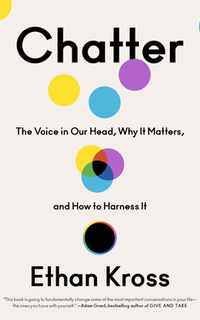
Another highly topical title (and one I've written about a bit on Inc.com before), The Burnout Epidemic digs into the true causes of burnout to help individuals and organizations find better fixes than just more yoga and a few additional vacation days.
We think of self-compassion as a way to be nice to ourselves and reduce personal suffering, but in this thought-provoking book psychologist Kristin Neff argues self-compassion "can give you the courage to recognize when you and others are being wronged--and to stand up for social justice," explains Greater Good. Though the book is aimed primarily at women, "it is instructive to men, too," the site adds.
The title of this book sounds like a beautiful but pie-in-the-sky dream, but within its pages journalist Jessica Nordell "offers hope for change, providing examples of interventions that have successfully reduced bias individually and institutionally. (Spoiler alert: Workplace diversity programs are usually not the answer.)" Sounds like something a lot of business leaders looking for better options might benefit from reading.
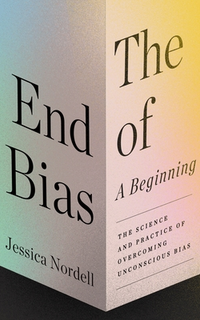
The pandemic and recent politics haven't always highlighted the best in human nature. You could be forgiven for surveying the past couple of years and concluding we're often nasty, selfish creatures. Evolutionary biologist Nichola Raihani's book makes the opposite case. "Humans have survived well because of their ability to interact and work with people outside their immediate family groups, organizing around shared needs," Raihani explains, insisting that, in the long run at least, "our cooperative nature tends to win out."
